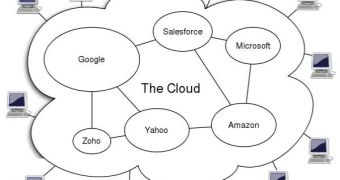Over the last couple of years, scientists have set their eyes on the relatively new technology of cloud computing, aiming to make use of the massive processing and storing capacity that the Internet-related computers have for the advancement of science. Just recently, researchers at the University of Washington managed to take the first step in that direction, when they received three National Science Foundation (NSF) awards related to cloud computing. Two of them are meant to stimulate the study of ocean climate changes and highly complex astronomical images, respectively, while the third is meant to provide the curricula and the expertise necessary to operate cloud computers.
At first, the scientists will access a cloud data center that has been created through a partnership between Google, IBM, and six academic centers, including the University of Washington. It has the ability to process thousands of gigabytes of data, because modern models are no longer used just to test a single hypothesis, but also to observe trends that may occur within ecosystems, or in the coldness of space, over extended periods of time.
“Using current tools, you can comfortably analyze and visualize datasets that fit in the computer underneath your desk. But you can't comfortably and interactively explore datasets at this new scale. We need to get smart sooner rather than later on how to design and build a system that doesn't just live out on these machines at government or company data centers, but extends the cloud right down to your computer,” UW eScience Institute researcher Bill Howe said.
“In the past, I could have spent a couple of hours working on a single image. But now, if I have to multiply it by factors of many tens of thousands, that couple of hours each becomes something that's not feasible. We want to use these frameworks to enable science, and make it so that astronomers can come in and do the work that they need to do without needing to learn the intricacies of how to work with thousands of machines,” UW Associate Professor of Astronomy Andrew Connolly added.
“The rapid evolution of sensors is transforming all sciences from data-poor to data-rich. The challenge is to use modern cloud computing resources, such as Amazon Web Services, and modern computer science advances, such as data mining and machine learning, to explore these massive volumes of data. This new computational science will be pervasive and will have enormous impact. UW is fortunate to be in on the ground floor,” UW Professor of Computer Science and Engineering Ed Lazowska concluded.

 14 DAY TRIAL //
14 DAY TRIAL //